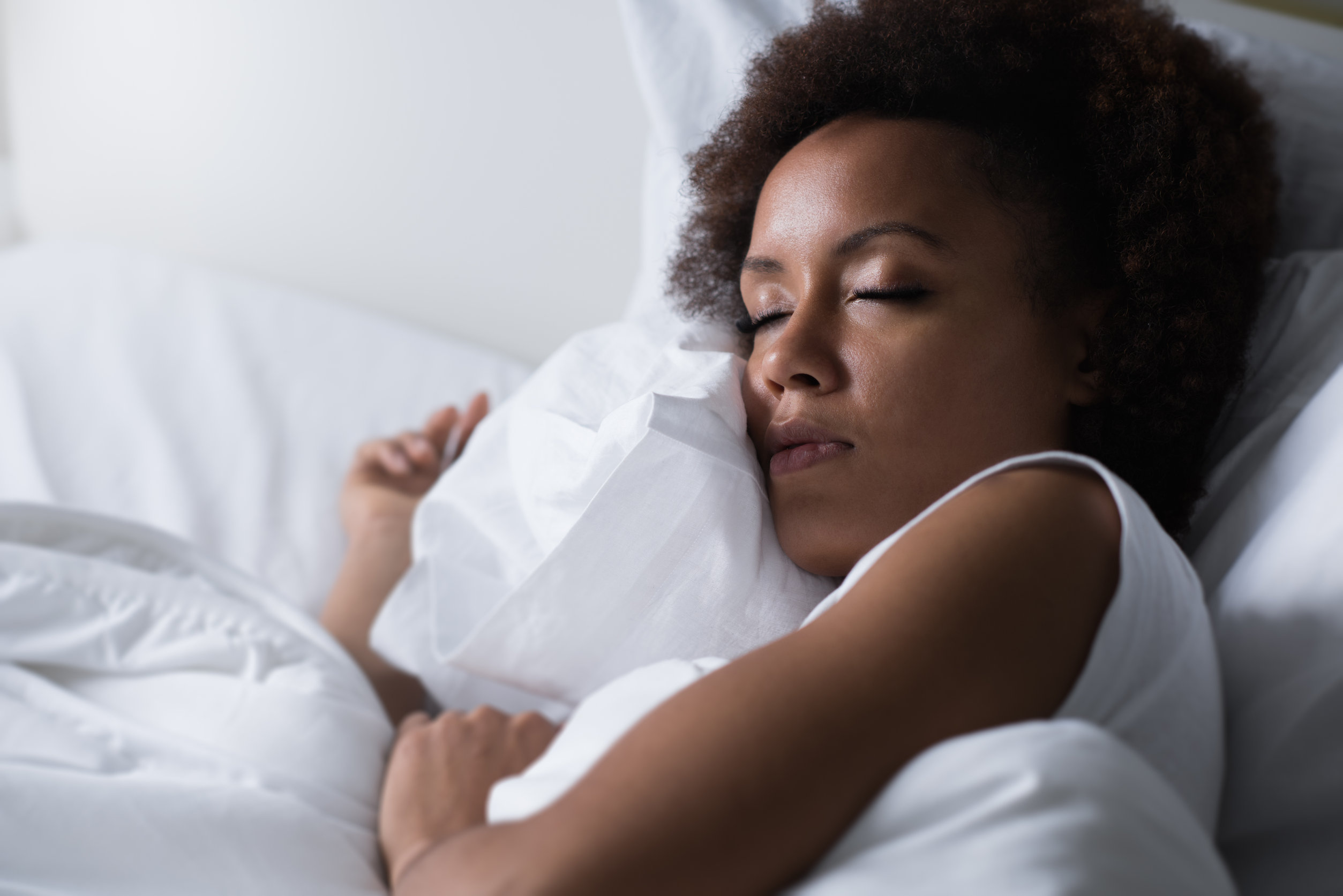”Delaware, did you know our skin health is related to sleep? This week's article is all about this interesting connection. We hope you find this informative and encourages you to sleep more!
Reading Time: 5 Minutes
MWi Hack:
- Learn about the interesting connection between our circadian rhythms and skin health.
MWi Summary:
- Our circadian rhythms are internal biological clocks that control events around sleeping and waking. Many of our organs have circadian rhythm-related genes, including our skin.
- Disturbances in our sleep patterns can negatively affect our skin health.
- We can support our skin health and circadian rhythms through consistent sleep/wake times, natural light exposure, timing our meals appropriately, reducing sugar intake, managing stress, and staying hydrated.
I spend plenty of money on creams, cleansers, and exfoliators, but good skin health starts on the inside. No cream on the planet can make up for bad habits that sabotage your most powerful ally in enabling the overall health of your skin–circadian alignment!
Your circadian rhythms are driven by a daily biological clock that persists even in a constant environment. This biological rhythm has a selective advantage in nature, allowing organisms to ‘anticipate’ sunrise (or sunset) rather than just react to these events. All of us are familiar with this rhythmic aspect of our life, whether it’s the regular timing of waking up in the morning, the rise and set of the sun, or hunger cues at normal intervals during the day.
We’ve also experienced what it feels like when these regular and predictable environmental patterns get disrupted by things like travel across many time zones (jet lag), social commitments that extend past our natural bedtime (social jet lag), or a new baby (or puppy) in the house.
These are usually relatively short disturbances in the grand scheme of things, but if they persist for long periods of time they can be detrimental to our biological functioning. In turn, they compromise our overall health and well-being. One of the less talked about consequences of chronic misalignment is the impact on our skin health.
IS BEAUTY SLEEP A REAL THING?
Your skin contains circadian clock genes, which play a role in the regulation of the circadian rhythm (Zanello et.al., 2000). Transepidermal water loss, keratinocyte proliferation, skin blood flow, and skin temperature have all been shown to have circadian variations. It makes sense that when these natural rhythms become disrupted, we will see it on our faces (literally!).
Below is a quick outline of behaviors that impact the activation of necessary processes which can influence skin health:
CONSISTENT, QUALITY SLEEP
“Beauty sleep” is 100% a real thing. When your sleep and wake times are irregular, it makes getting quality sleep (enough time spent in REM and slow-wave sleep) that much more difficult. Inconsistent and low-quality sleep has a wide range of effects on many underlying biological processes, including hormone production and release, stress levels, inflammation, and even your eating habits.
All of those can have a substantial impact on the health of your skin. The signs of not optimizing sleep show up in the form of fine lines, uneven pigmentation, and reduced elasticity–all of which means more wrinkles.
ALIGN YOUR “CLOCKS”
Consistent sleep and wake timing, as well as ensuring a cold, dark, and quiet environment are key. These habits and environmental conditions optimize time in deeper stages of sleep (when the body releases a majority of human growth hormone), a necessary ingredient to produce collagen. Poor quality sleep also raises cortisol levels which interfere with collagen production.
NATURAL LIGHT
Exposure to natural light in the early morning hours sets our circadian rhythm/internal clock and enables quality sleep. We need the sun’s bright blue light in the morning to become alert and active. At night, darkness, or at least the absence of blue light, jump-starts the brain’s (and consequently the skin’s), sleep and recovery mode.
MEAL TIMING
Timing your meals effectively helps promote “circadian synergy.” I do my best to eat with the sun. Skin health, and our overall health, is not just about what we eat–of equal importance is when we eat. I try to eat while it’s light, and limit what I eat during hours when it is dark (with a hard stop at 7 pm). The earlier I eat dinner, the better I sleep and the better I feel and look the next day.
MORE KEY BEHAVIORS TO IMPROVE SKIN HEALTH
REDUCE SUGAR INTAKE
Research indicates that elevated glucose levels can speed up the aging of the skin and create conditions that lead to acne. The biggest culprit that creates an obvious elevation in glucose levels is, no surprise, sugar. Excess sugar in the body appears to speed up processes associated with:
- poor function of structural proteins like collagen & elastin
- thinning of skin
- reduced blood flow
- decreased pigment production
- a degradation in cell turnover and replication
Excess sugar also can cause inflammation. Chronic low-grade inflammation produces enzymes that break down collagen and elastin, resulting in more visible fine lines and less elasticity.
BUFFER STRESS WITH REST
Stress can spike insulin levels (just like eating sugar can). When we allow stress to build without giving ourselves time to rest we end up releasing too much cortisol. This biochemical imbalance interferes with your ability to fall asleep at night and will also fragment sleep, leading to less time in deeper restorative stages and more time in light and awake stages.
The effects of stress are particularly correlated with acne breakouts, as well as dull, dry, and tired-looking skin. Building in moments of rest (diaphragmatic breathing is a great option) after acute stressors is a key skill that will help drive quality sleep, which will, in turn, lead to healthier, younger-looking skin.
PRIORITIZE WATER
Water solves for a lot. Want to boost metabolism? Have some water! Proper hydration can boost your body’s ability to burn fat. A study published in the Journal of Clinical Endocrinology & Metabolism found that consuming water (about 17 oz) increases metabolic rate by 30% in healthy men and women. Want to improve your focus? Drink some water! Your brain needs a lot of oxygen to function at optimum levels, so drinking plenty of water ensures that it’s getting all it needs.
Want better-looking skin? Again, water! It replenishes the skin tissue and skin cells, plus it improves your skin’s elasticity.
THE NEED FOR CIRCADIAN ALIGNMENT
Circadian rhythm disruption has been implicated in a wide variety of dermatologic conditions. By understanding and adopting basic behaviors that contribute to circadian alignment, we can then start to create a foundation that enables our underlying biological processes to function in the most optimal way.
In principle, the less friction we create for our body to do what it wants to do on the inside, the more benefits we will observe on the outside.
MWi would like to thank Kristen Holmes for her expert insights that we were able to share with our community. To read the original article go to:
https://www.whoop.com/thelocker/beauty-sleep-circadian-synergy-skin-health/






